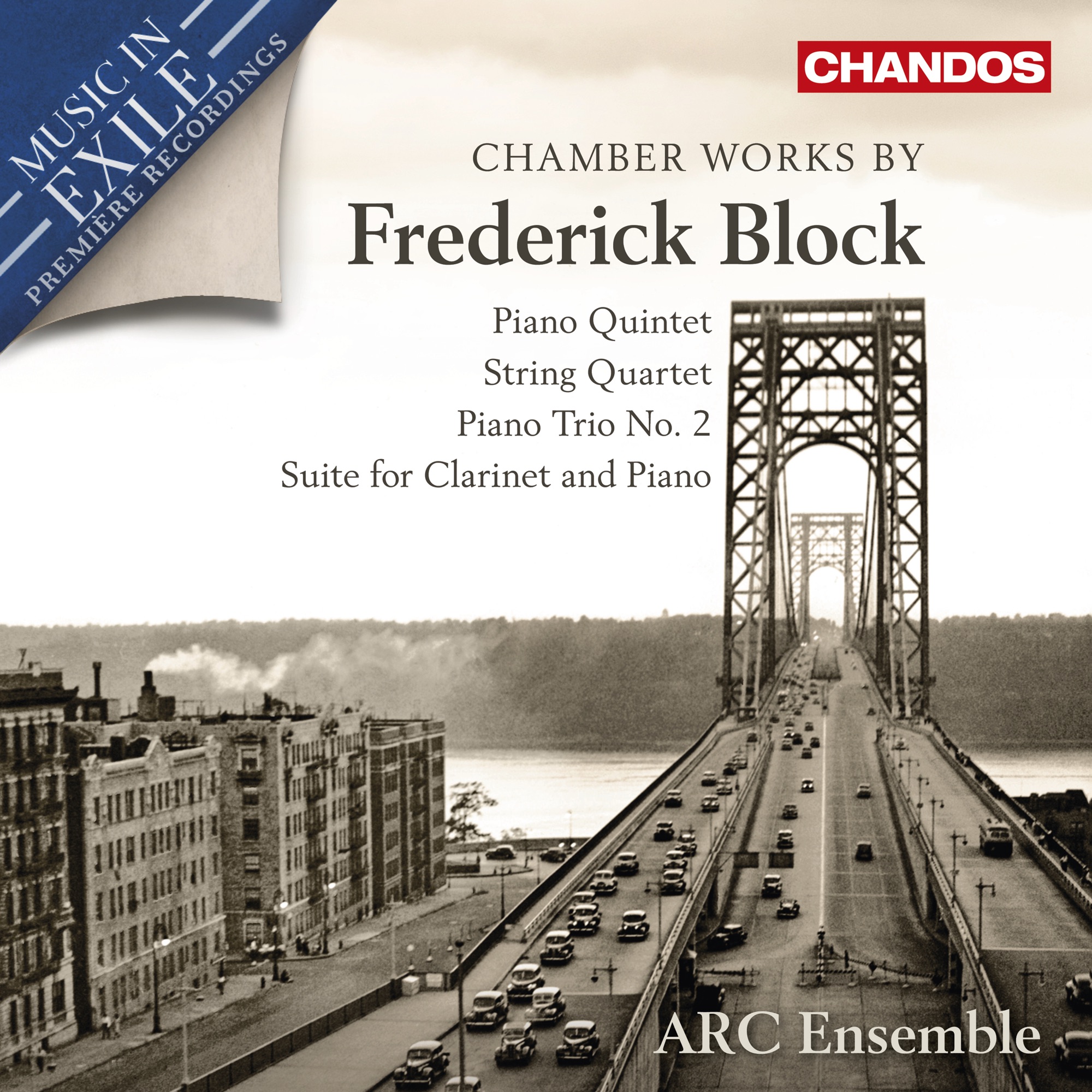
[ad_1]

By whom? This is latest release in this fascinating series that seeks to record music that has been neglected. Music in Exile shares a kinship with Decca’s “Entartete Musik” (Degenerate Music) series, among others. That series focused on music and composers judged inferior by the leaders of the Third Reich. Their suppression of music paralleled their suppression of visual art which suppressed works purported to be “degenerate” and presumably toxic to their political goals. That meant, in the case of music, essentially two categories. The largest is the suppression of Jewish composers (regardless of style and/or content) and also musical modernism that the regime did not understand. Similar suppression occurred under Stalin in Russia.
But Music in Exile casts a wider net. One does not need a totalitarian regime to cause suppression. Economic and performance opportunities are mediated by many factors and music gets neglected for many reasons, some far less onerous than directed political oppression. This music which was composed for general performance has no overt political agenda, rather it is the victim of political and economic agendas.
That, in a nutshell, is the essence of the choices of repertoire that ARC (Artists of the Royal Conservatory) director, Simon Wynberg makes to create this fascinating and historically significant recording project. Of course neither suppression nor neglect confer values by themselves. I mean, the thrill of finding a major masterpiece is certainly the driving force but, even if these recordings ultimately only fill the gaps in the list of historical recordings, the opportunity for listeners to hear them is the point here. That said, I am appending a list of this ensemble’s discography (kindly supplied by promotional staff) thus far:
ARC ENSEMBLE DISCOGRAPHY
On the Threshold of Hope, Mieczyslaw Weinberg Chamber Music (2006)
with Richard Margison, tenor
RCA Red Seal (Sony) 82876-87769 2 (GRAMMY and JUNO nominations, 2007)
Right through the Bone: Julius Röntgen Chamber Music (2007) RCA Red Seal (Sony) 88697-158372 (GRAMMY nomination, 2008)
Two Roads to Exile: Walter Braunfels String Quintet, Adolf Busch String Sextet (2010) RCA Red Seal (Sony) 88697-64490 2
Music in Exile: Chamber Works by Paul Ben-Haim (2013) Chandos 10769
Music in Exile: Chamber Works by Jerzy Fitelberg (2015) Chandos 10877 (GRAMMY nomination, 2016)
Music in Exile: Chamber Works by Szymon Laks (2017) Chandos 10983 (JUNO nomination, 2018)
Music in Exile: Chamber Works by Walter Kaufmann (2020) Chandos 202170 (OPUS Klassik nomination, 2020)
Music in Exile: Chamber Works by Dmitri Klebanov (2021) Chandos 20231 (JUNO nomination, 2022)
Music in Exile: Chamber Works by Alberto Hemsi (2022) Chandos 20243 (JUNO nomination, 2023)
Music in Exile: Chamber Works by Robert Muller-Hartmann (November, 2023) Chandos Records
All titles produced by David Frost and engineered by Carl Talbot
Now comes the latest release, all premiere recordings, of chamber music by “Frederick [Friedrich] Block [Bloch]” (1899-1945). This series is a real “feather in the cap” of the wonderful Chandos label whose curatorial choices are always intelligent and wide ranging.
This latest release is another triumph, another unveiling of some truly fine music which, thanks to the passion of researcher/producer Simon Wynberg and the fine musicians of the Toronto Conservatory, are now available in definitive performances lovingly documented in high quality recordings. Even if these works never again have performances or recordings (something this writer doubts), they will have a life heretofore denied them in the lasting medium of recorded sound. In addition to the music, Wynberg pens some profoundly useful program notes that help provide flavor and context to this all but forgotten composer. Wynberg notes that, while Block’s archive was acquired by the New York Public Library and carefully preserved, this recording represents the first serious effort to explore his ultimate legacy. All works are world premiere recordings.
Four works, all but one written in the interwar years (1918-1939), an era in which American composer Aaron Copland suggested that there remain many works which deserve attention. How right he was.
The disc opens with the substantial four movement Piano Trio No. 2 Op. 26 (1930). Frederick Block was not a modernist or innovator but that is not a bad thing. Block was a fan of Gustav Mahler’s music and, as such, a proponent of a similarly post romantic ethic. Here we have a highly entertaining work which is challenging to performers but wonderfully entertaining to audiences.
The first movement signals a post Brahmsian style with highly virtuosic writing and a slightly extended harmonic language just enough to let the listener know that the 19th century has indeed passed.
It is followed by a playful, brief scherzo-like movement followed by a lovely, sometimes mournful adagio and a truly fun last movement deriving inspiration from tango music but still firmly ensconced in classical traditions going back to the classical era of Mozart and Haydn.
It left this listener longing to hear Maestro Block’s first essay in this form (and sparked curiosity about his other unheard music). Perhaps a future release will expand the exploration and documentation of this forgotten master still further.
Next up is String Quartet Op. 23 (1929-30) cast in the classical four movements. Again the harmonic language is just noticeably post romantic (and quite beautiful). It is easy to imagine this work included in a satisfying evening of chamber music. It is melodic and requires significant performance skills but poses little challenge to the engaged listener.
The Suite for Clarinet and Piano Op.73 (1944), written at the height of the Second World War, consists of 5 brief movements (the longest clocks in at just over 3 minutes and the entire suite at just shy of 8 minutes). It is as lively and engaging as imaginable, suggesting no echoes of the still ongoing world war. It is sort of a delightful palate cleanser for the closing work on the disc.
And the closing work is in a form born in the romantic era with Schubert’s “Trout Quintet” (1819) being the shining emblematic work in that genre. Other well known examples include the quintet by Robert Schumann (1842) and that of Johannes Brahms (1864). Now I don’t mean to suggest that Block’s entry in the genre will give these classics serious competition but this 1929 entry would do well in a pairing with one or all of the aforementioned classics.
Block’s Piano Quintet is cast in three movements and is a beautiful example of some of the best post romantic pieces for this chamber grouping. As with the previous works on this recording, this one delights the ear with rich melodic and harmonic gestures that would likely please a chamber music audience.
This disc makes a strong case for further curatorial efforts by Mr. Wynberg and the fine musicians of the Royal Conservatory in Toronto. This is a wonderful release which adds some substantial pieces to the chamber music repertory. It is also, in its way, a strong advocacy of musical art as well as a condemnation of those people and forces which cause the oppression of artistic expression.
In addition to Simon Wynberg’s scholarly curatorial efforts, thanks are due to the following musicians of the Royal Canadian Conservatory: Erica Raum and Marie Bérard, violins; Steven Dann, viola; Tomas Wiebe, cello; Joaquin Valdepeñas, clarinet; and Kevin Ahfat, piano.
If you’re a chamber music fan and/or a supporter of the arts, you owe it to yourself to check this one out. You won’t be disappointed.
[ad_2]
Source link






